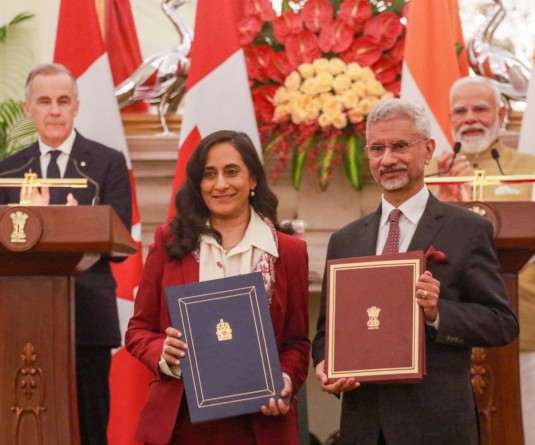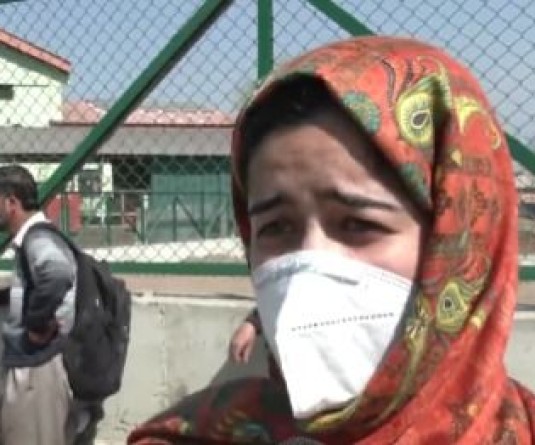
GENEVA, July 6 (Reuters): A solid shift to green technologies in world farming is vital if endemic food crises are to be overcome and production boosted to support the global population, the United Nations said on Tuesday. And as a first step, governments and international agencies should focus on boosting small-scale agriculture in developing countries with support services like rural roads and sustainable irrigation, a report from the world body argued.
"Food security must now be attained through green technology so as to reduce the use of chemical inputs -- fertilizers and pesticides -- and to make more efficient use of energy, water and natural resources," it declared. The report, the U.N.'s latest World Economic and Social Survey, said a sharp move away from large-scale, intensive systems of agriculture was essential if growing environmental and land degradation was to be halted.
The food crisis of 2007-08 and a price spike this year "have revealed deep structural problems in the global food system and the need to increase resources and innovation in agriculture so as to accelerate food production," the survey declared. Food output, it said, would have to increase between 70 and 100 per cent by 2050 to sustain a world population that would have grown by 35 per cent from the present 6.9 billion to around 9 billion by that time.
The main policy focus "should be promotion and development of sustainable agriculture, with an emphasis on small farm holders in developing countries," declared the survey, from the U.N's Department of Economic and Social Affairs, which concentrated on short and medium term solutions to hunger. "Evidence has shown that for most crops the optimal farm is small in scale and that it is at this level that most gain in terms of both sustainable productivity increases and rural poverty reduction can be achieved," it said.
Presenting the survey, U.N. Under-Secretary General Sha Zukang said in the long-term "large-scale agriculture is the way ahead," adding: "But to get started on the way to sustainability you have to invest in small-scale farming." Of the nearly one seventh of the global population, some 925 million people who are undernourished -- or lacking access to enough food to make possible an active and healthy life -- 98 per cent live in developing countries, according to the survey.
Two thirds of them are concentrated in seven countries -- Bangladesh, China, Democratic Republic of Congo, Ethiopia, India, Indonesia and Pakistan. Overall, 578 million are in Asia and the Pacific and 239 million in sub-Saharan Africa. The worst drought in 60 years in the Horn of Africa has sparked a severe food crisis and high malnutrition rates, with parts of Kenya and Somalia experiencing pre-famine conditions, the United Nations said last week.
The survey said achieving food security through "a truly green agricultural revolution" would provide a long-term solution to hunger and malnutrition and ease price volatility while protecting the environment. It argued that the so-called "green revolution" of the 1960s and 1970s had boosted farm yields as much through intensive practices as through new seed varieties, and had so contributed to the environmental degradation the world suffered today.
"Food security must now be attained through green technology so as to reduce the use of chemical inputs -- fertilizers and pesticides -- and to make more efficient use of energy, water and natural resources," it declared. The report, the U.N.'s latest World Economic and Social Survey, said a sharp move away from large-scale, intensive systems of agriculture was essential if growing environmental and land degradation was to be halted.
The food crisis of 2007-08 and a price spike this year "have revealed deep structural problems in the global food system and the need to increase resources and innovation in agriculture so as to accelerate food production," the survey declared. Food output, it said, would have to increase between 70 and 100 per cent by 2050 to sustain a world population that would have grown by 35 per cent from the present 6.9 billion to around 9 billion by that time.
The main policy focus "should be promotion and development of sustainable agriculture, with an emphasis on small farm holders in developing countries," declared the survey, from the U.N's Department of Economic and Social Affairs, which concentrated on short and medium term solutions to hunger. "Evidence has shown that for most crops the optimal farm is small in scale and that it is at this level that most gain in terms of both sustainable productivity increases and rural poverty reduction can be achieved," it said.
Presenting the survey, U.N. Under-Secretary General Sha Zukang said in the long-term "large-scale agriculture is the way ahead," adding: "But to get started on the way to sustainability you have to invest in small-scale farming." Of the nearly one seventh of the global population, some 925 million people who are undernourished -- or lacking access to enough food to make possible an active and healthy life -- 98 per cent live in developing countries, according to the survey.
Two thirds of them are concentrated in seven countries -- Bangladesh, China, Democratic Republic of Congo, Ethiopia, India, Indonesia and Pakistan. Overall, 578 million are in Asia and the Pacific and 239 million in sub-Saharan Africa. The worst drought in 60 years in the Horn of Africa has sparked a severe food crisis and high malnutrition rates, with parts of Kenya and Somalia experiencing pre-famine conditions, the United Nations said last week.
The survey said achieving food security through "a truly green agricultural revolution" would provide a long-term solution to hunger and malnutrition and ease price volatility while protecting the environment. It argued that the so-called "green revolution" of the 1960s and 1970s had boosted farm yields as much through intensive practices as through new seed varieties, and had so contributed to the environmental degradation the world suffered today.






